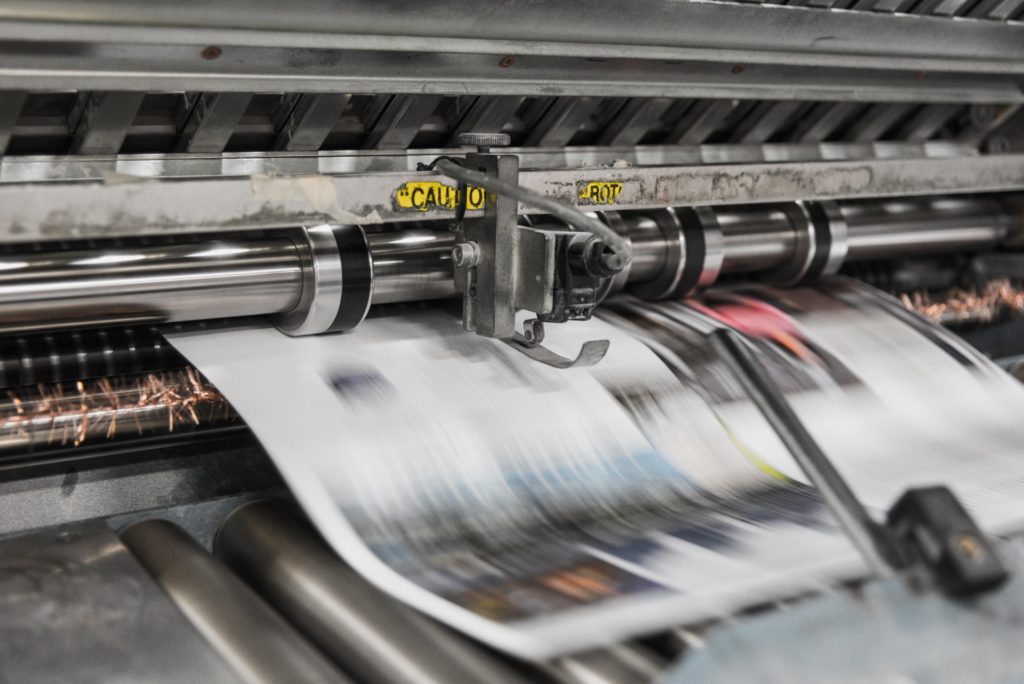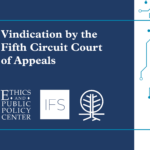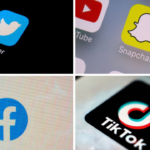
Published December 15, 2021
Newspapers are finally getting their day in court to recover all the revenue Big Tech companies have been stealing from them. Last week, it was reported that over 200 newspapers have filed lawsuits against Google and Facebook in the past year, alleging that the two firms monopolized digital-ad revenues that would otherwise go to local-news outlets. It is high time these newspapers get compensated fairly for the content that Big Tech has been using to steal their revenue and drive them out of business.
In the last two years, 300 publications have closed, with more than 6,000 journalists axed. Facebook and Google publish news articles which they use to sell ads, and then pocket the vast majority of the profit. They give little in return. Google and Facebook attract 80 percent of digital-ad spending and 45 percent of all ad spending in the U.S. For every dollar made in digital advertising, the platforms take as much as 70 percent of the revenue, leaving publishers with a mere 30 percent.
With one hand, the Big Tech giants help news providers by distributing their news. But with the other, they siphon so much of the resulting ad revenue that the providers can barely survive. And many have not: Nearly half of the counties in the country now have only one newspaper, while almost 200 counties have no local newspaper at all.
Thankfully, over 200 newspapers are striking back in court. The first lawsuit, a federal antitrust suit, was filed earlier this year by HD Media LLC, which owns several newspapers in West Virginia, including the Charleston Gazette-Mail. The lawsuit alleges that Google and Facebook are manipulating the digital-advertising market, and follows years of complaints by industry executives that Big Tech has siphoned away their ad revenue and taken ever-more control over their ability to reach readers. According to HD Media’s lead lawyer, the company’s digital-ad revenue has declined even as its digital audience has grown. And this is the core dynamic at issue for news providers today: Big Tech increases the distribution of their news but at the same time drastically reduces their profits.
What started as a small-town effort in West Virginia to stand up to Big Tech has now become a national movement, with over 200 newspapers across dozens of states filing suits against Google and Facebook. The goal of this litigation is “to recover past damages to newspapers” caused by Big Tech companies, says Clayton Fitzsimmons, one of the lawyers representing the newspapers.
It will be important to keep an eye on the outcome of these lawsuits, all of which were consolidated by a judicial panel over the summer in the Southern District of New York. If they are successful, the papers could be entitled to “treble damages,” settlements that are three times the actual damages that are proven to have been inflicted. This would be a much-deserved and needed victory for the newspapers.
But while it is important that this litigation succeeds so that newspapers can recover the revenue they have lost to Big Tech, it is clear systemic change is needed for the news industry in the U.S. to survive. As I have written previously, in order to protect all news publishers, especially small ones, the United States should follow the model established by Australia’s News Media Bargaining Code, which was passed in February of this year. The Code requires the dominant tech platforms to negotiate with and compensate news publishers in Australia for use of their content online. This antitrust-competition law improves media companies’ bargaining power and treats each negotiation as if it were a financial settlement in an antitrust lawsuit. It forces tech companies into mandatory arbitration with news outlets to determine payment for the value obtained from news content placed in newsfeeds and search results. The code has already proven successful in helping news providers in Australia secure good compensation from Big Tech companies. Even small papers have benefited enormously. For example, the Australian news organization Country Press Australia (CPA), which includes over 180 regional and local publications, was able to secure a deal with Google.
In fact, a similar approach to Australia’s has already been introduced in Congress in the form of the bipartisan Journalism Competition and Preservation Act (JCPA). This “safe harbor” bill would pause antitrust restrictions for four years to let publishers unite to negotiate with Facebook and Google for fair compensation for news content. Currently, no news company is in a position to negotiate by itself with Facebook and Google. And these Big Tech companies are already working hard to cut separate deals to pick off the big guys for comparatively low amounts, which would leave the local papers to fend for themselves.
Journalism as a whole and local journalism in particular are vital to the health of our democratic republic. These lawsuits are a critical first step towards protecting our news from the crushing control of Big Tech. But we should not stop there. Congress should act quickly to pass the JCPA, so all papers have the ability to bargain effectively for their fair share and secure their survival.
Clare Morell is a policy analyst at the Ethics and Public Policy Center, where she works on the Big Tech Project. She worked in the White House Counsel’s Office and the Justice Department during the Trump administration.
Clare Morell is a Senior Policy Analyst at the Ethics and Public Policy Center, where she directs EPPC’s Technology and Human Flourishing Project. Prior to joining EPPC, Ms. Morell worked in both the White House Counsel’s Office and the Department of Justice, as well as in the private and non-profit sectors.












